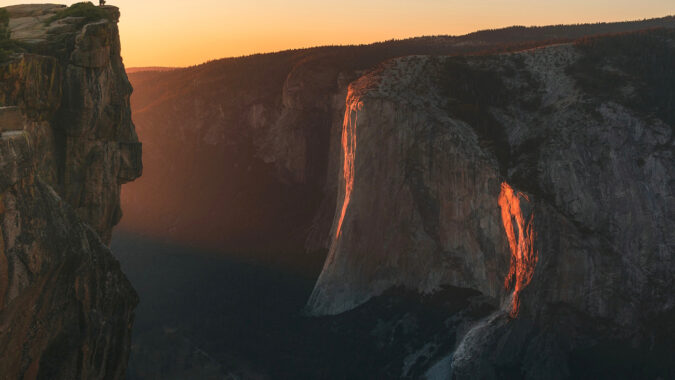
Ignorance is like a thick cloud that darkens the sky, blocking the bright light of our inner wisdom.
Dharma Master Cheng Yen
According to Buddhism, ignorance is a primordial force that afflicts us all. In Buddhist scriptures, it is referred to by the Sanskrit term avidyā (Pāli: avijjā), combing the root vid, which means to “see, know, perceive or understand,” with the negation a, resulting in the opposite meaning.
Avidyā is closely synonymous with moha, the Sanskrit term for “delusion,” which prevents discernment of the truth about the illusory nature of reality, as Dharma Master Cheng Yen explains:
Everything in the world is only a composite of different elements. When these elements come together, the material thing is formed; when the elements disperse, the object ceases to exist. This is the nature of things, yet because of the feelings these material things evoke in us, we become attached to them.
It is like looking into a mirror – we see our face, yet is the person in the mirror “real”? It is but an image reflected back. If we move the mirror to face a mountain, we can see the mountain reflected clearly in the mirror. Is the mountain in the mirror the real mountain? It is but an image, produced by the components of mirror and mountain, not to mention the elements that comprise the mirror itself.
What then is there to be attached to? The composite created by turning the mirror on the object, however, evokes certain sensations or feelings, and we become caught up in these feelings. If we can perceive this truth, we awaken deeply. Every day, in our daily life, if we can mindfully reflect, we can touch the true nature of things around us.
Avidyā pertains to a lack of awareness or full understanding of impermanence (Sanskrit: anityatā); emptiness (Sanskrit: śūnyatā) and non-existence of self (Sanskrit: anātman); and the Four Noble Truths – the truth of suffering, causation, cessation and path.
Our deluded ignorance gives rise to identification with a self that is separate from everything else, which in turn leads to a dualistic polarity of like and dislike, desire and rejection, in regard to experience and phenomena.
The forces of ignorance and delusion (Sanskrit: avidya and moha), when combined with attachment, craving or greed (Sanskrit: raga), and aversion, anger or hatred (Sanskrit: dvesha), are called the three poisons (Sanskrit: triviṣa) or three unwholesome roots (Sanskrit: akuśala-mūla) that are the primary causes for sentient beings remaining caught in samsara (the ceaseless cycle of birth, death and rebirth) and its suffering.
The Buddha was keenly aware that in everyday life, we easily lose ourselves – with the arising of an unwholesome thought … we are as if shot by a poisoned arrow. It creates a lot of suffering for us. Though we are often not aware of it, there are poisoned arrows constantly coming at us.
For example, as our eyes make contact with the sensory world with all its forms and sights, in the space of an instant, the arrow of love or very strong liking hits us. With this liking, we pursue the thing that we like. In our everyday life, thoughts of this nature are constantly arising, and we start to chase after all sorts of things, be it profit, fame, power, material possessions, or satisfaction of lust and sensual desire.
Just as strong liking is a poisoned arrow, the Buddha says, so is delusion. Craving, greed, anger, ignorance, arrogance, opinion, arising and disappearing are all arrows that can speedily cause us harm. At the moment we give rise to any such thought, we are hit by a poisoned arrow. We lose our wellbeing and peace of mind. We become physically and spiritually off-balance – discontent, distressed, wretched, miserable.
Of the three poisons, ignorance is viewed as the worst, inhibiting our ability to follow the Noble Eightfold Path that leads to the cessation of suffering:
Ignorance is the leader in the attainment of unskillful qualities, followed by lack of conscience and lack of concern. In an unknowledgeable person, immersed in ignorance, wrong view arises. In one of wrong view, wrong resolve arises. In one of wrong resolve, wrong speech... In one of wrong speech, wrong action... In one of wrong action, wrong livelihood... In one of wrong livelihood, wrong effort... In one of wrong effort, wrong mindfulness... In one of wrong mindfulness, wrong concentration arises.
The Buddha, Avijja Sutta
The antidote to ignorance is wisdom (Sanskrit: prajñā) or “clear-knowing” which can be attained through spiritual cultivation:
[The Buddha] wanted us to understand that when we are driven by greed, anger, and delusion, we do many things that go against life’s principles and in doing this, we create negative karma. The law of cause and effect is a natural law; by creating negative karma, we will reap its retribution. This retribution is why we experience so many problems and suffering.
But it doesn’t have to be this way. If we can purify our heart and mind of greed, anger and delusion, and work on changing our wrong behavior, we can create a better life for ourselves, a life full of wisdom and blessings. Not only that, we can also help bring about a peaceful world where everyone lives in harmony with love and goodness in their hearts, and in wellbeing without disasters and man-made calamities.
The sections in italics consist of excerpts of material compiled into English by the Jing Si Abode English Editorial Team, based on Dharma Master Cheng Yen’s talks.
































